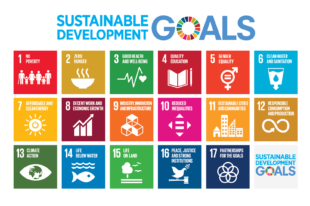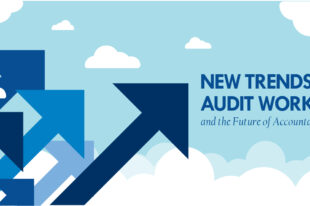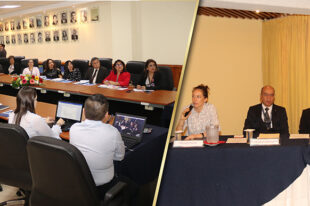Addressing the “Cancer of Corruption” with Communication, Collaboration, Capacity Development
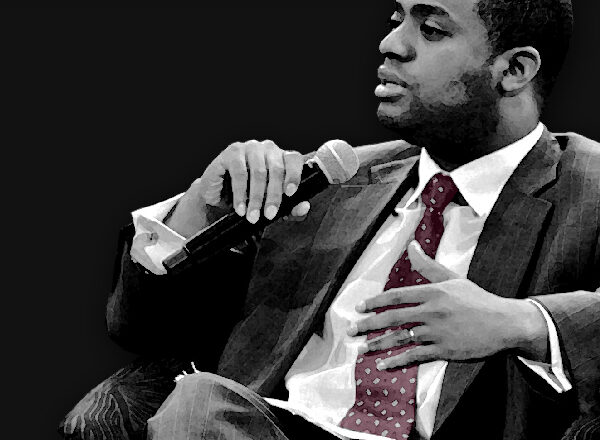
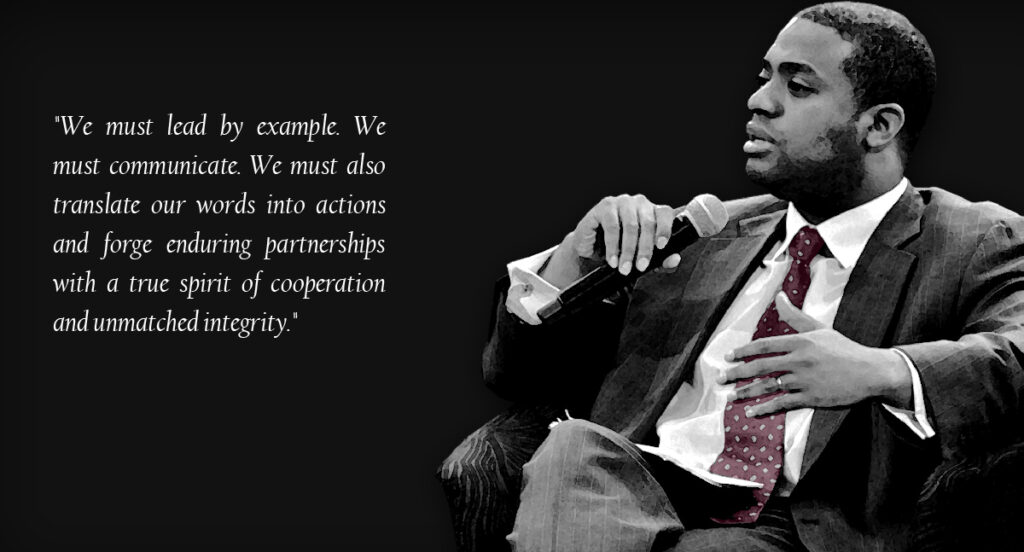
by James-Christian Blockwood, Managing Director of the U.S. Government Accountability Office Strategic Planning and External Liaison and President of the International Journal of Government Auditing
In his 1996 speech as World Bank President, James David Wolfensohn stressed the need to address accountability, capacity and transparency to ensure sufficient and efficient use of resources, particularly for those most in need.
In that same speech, he underscored the belief that we must also deal with the “cancer of corruption.” It’s a compelling message describing actions that rob a nation and its citizens, undermine trust and weaken confidence in governments. Viewing corruption through this lens also made it clear—the world must do more than merely treat this “disease.” We must work toward a cure and implement measures to prevent its return.
Though we have made progress in addressing corruption, given the global climate where uncertainties are inherent in complex systems of governance—shifting demographics, economic changes, new and evolving risks and technological innovation—we still have work to do.
We must lead by example. We must communicate. We must also translate our words into actions and forge enduring partnerships with a true spirit of cooperation and unmatched integrity. I am fortunate, and proud, to be part of an organization and part of a global community enhancing visibility, partnerships and capacity to address these topics—topics that bear considerable importance to us as individuals, organizations, nations and the world.
In recent years, technology and data have greatly impacted anti-corruption and transparency initiatives, so it’s no surprise these trends have risen to the forefront of our conversations. At the same time, highlighting efforts in communication, collaboration and capacity development is crucial, as these elements will remain at the core of fighting corruption.
The U.S. Government Accountability Office (GAO) has made great strides in creating a climate rich with the vital ingredients necessary to help combat fraud, waste, abuse and mismanagement and promote good governance. Critical to its success in these areas are GAO’s development and deployment of tools such as Generally Accepted Government Auditing Standards, Standards for Internal Control in the Federal Government, and Framework for Managing Fraud Risks in Federal Programs. Under the leadership of the U.S. Comptroller General, Gene L. Dodaro, GAO has endeavored to impart knowledge widely and partner to assist when and where needed.
“I am fortunate, and proud, to be part of an organization and part of a global community enhancing visibility, partnerships and capacity to address these topics—topics that bear considerable importance to us as individuals, organizations, nations and the world.”
I aspire to employ the same approach as Managing Director for GAO’s Strategic Planning and External Liaison (SPEL), which oversees several programs with global reach—the International Journal of Government Auditing (Journal), International Auditor Fellowship Program (IAFP) and Center for Audit Excellence (CAE)—that lend themselves to communicating, connecting and cultivating capacity to foster positive change in the global accountability community.
The Journal is the official communication organ of the International Organization of Supreme Audit Institutions (INTOSAI), an umbrella organization that provides an institutionalized framework for 194 member Supreme Audit Institutions (SAIs) worldwide. An essential resource to inform and educate, the Journal has been instrumental in increasing our ability to share insight and best practices across INTOSAI more pervasively and quickly through social media (our Twitter audience has more than doubled over the past two years) and more substantively by introducing spotlight sections and developing thematic approaches, such as this edition on anti-corruption and good governance.
The Journal’s ability to incorporate and convey diverse perspectives and experience spanning the globe creates a force multiplier in our efforts to connect more broadly and expose approaches that can help shape the accountability community of the future.
As our community continues to adapt and adjust, communicating will become an increasingly important skill that, when combined with collaboration and leadership, will transform how we fight corruption and how we advance good governance.
The IAFP weaves all of these concepts together by emphasizing communicating and collaborating across regions and cultures while also stressing the importance of leadership. The program, designed to empower future generations, has graduated more than 600 audit professionals in its 40-year history and has created a network of colleagues with a collective understanding about the power of communicating, collaborating, and leading and the power that comes with harnessing these skills to effectuate change.
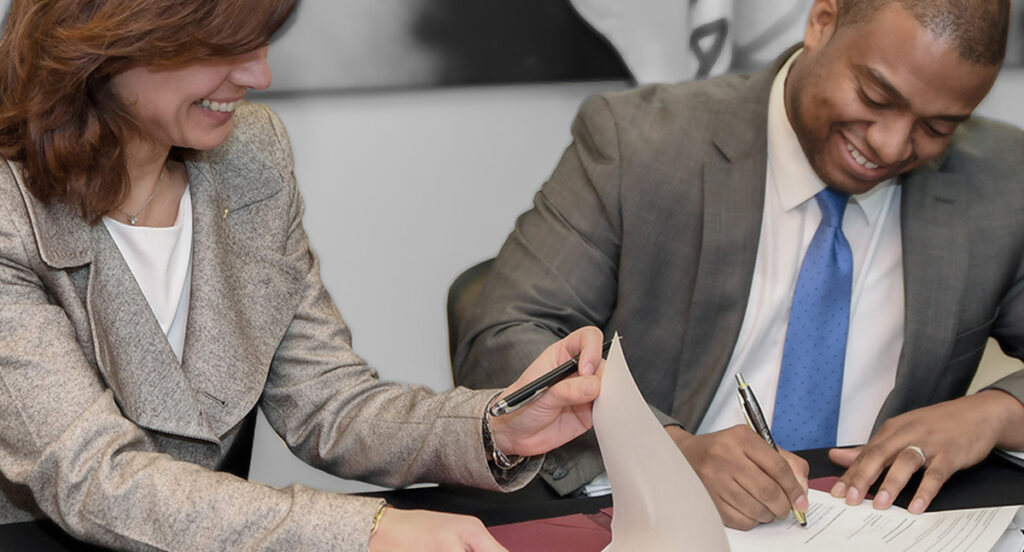
Change is not easy, especially when facing headwinds of corruption and limited accountability. Through the CAE, we leverage the knowledge and experience of former GAO senior-level professionals and partner with world-renowned organizations to provide training and technical support to improve performance and transparency and ensure the sound use of public funds. We recently signed an agreement with the World Bank that strengthens our existing partnership and expands capacity development support.
SPEL collaborative efforts include managing GAO participation in INTOSAI, which has several working groups—Fight Against Corruption and Money Laundering, Value and Benefits of SAIs, and Big Data—that promote integrity, open data and transparency initiatives. GAO has also partnered with the INTOSAI-Donor Cooperation (IDC), a strategic global partnership between INTOSAI and 23 development partners. The IDC has led to augmented SAI capacity support resulting in far-reaching achievements that have positively affected SAIs around the globe, especially in the African and Pacific regions.
In addition to existing partnerships, creating new ones is also part of the agenda. Groups like the Organisation for Economic Co-operation and Development (OECD) Auditors Alliance provide unique global forums encouraging cooperation and facilitating information exchange on topics of global interest. In March, I attended the Auditors Alliance meeting, which highlighted “Auditors and Technology” and included enriching discussions on interesting digital trends impacting audit work with a particular emphasis on how audit institutions are taking steps to prevent corruption and resource waste.
Technological advances in artificial intelligence, automation and data analytics provoked stimulating exchanges on employing these tools to create efficiencies and enhance audits; however, modernization does not eliminate the need for auditors. In some instances, modernization will involve more human interaction and dialogue—leveraging communication platforms to more broadly disseminate audit findings to increase transparency and providing human interpretation into data results to help uncover root causes of corruption. The goal is to integrate, not replace. Incorporating new technologies and new approaches will force us to reexamine our strategies, build data literacy and find ways for more collaborative work.
The digital evolution brings ample opportunities, as well as sizable challenges. This evolution, along with the global climate, will require substantial adaptation—individually, organizationally, nationally and globally—which, in turn, will require considerable strengths in communicating, collaborating and capacity development if we are to build on the progress we have made in addressing good governance and successfully dealing with the “cancer of corruption.”
Click here to download the article (pdf)

